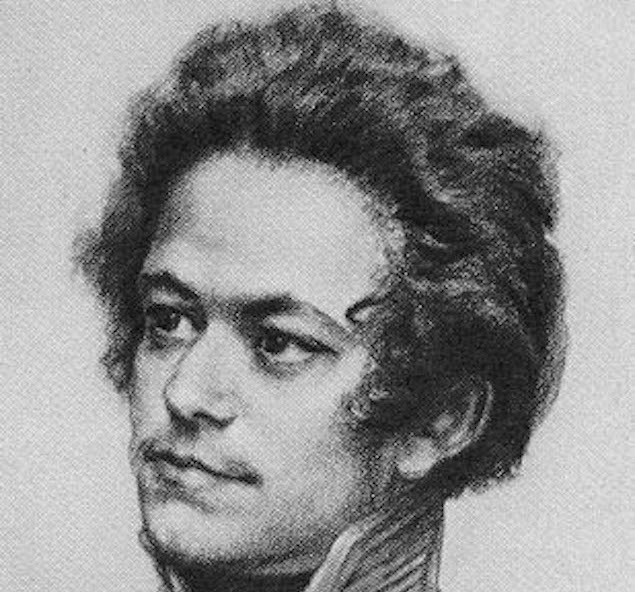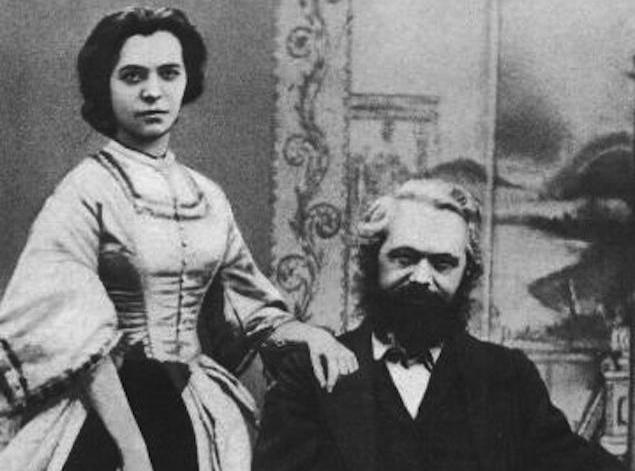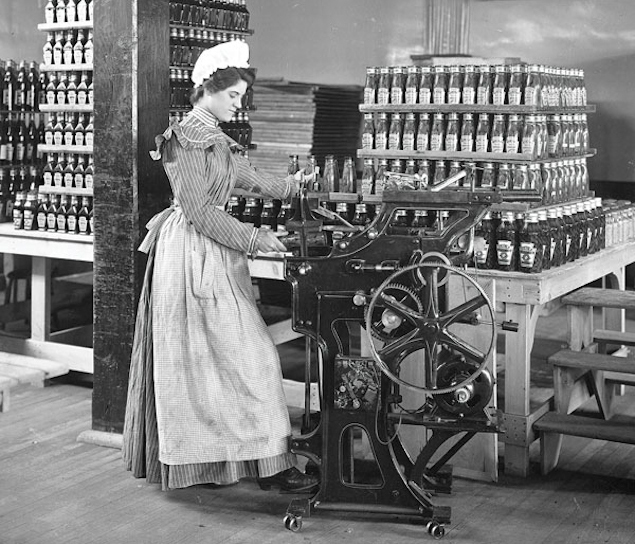Leisure • Political Theory
Karl Marx
Most people agree that we need to improve our economic system somehow. It threatens our planet through excessive consumption, distracts us with irrelevant advertising, leaves people hungry and without healthcare, and fuels unnecessary wars. Yet we’re also often keen to dismiss the ideas of its most famous and ambitious critic, Karl Marx. This isn’t very surprising. In practice, his political and economic ideas have been used to design disastrously planned economies and nasty dictatorships. Frankly, the remedies Marx proposed for the ills of the world now sound a bit demented. He thought we should abolish private property. People should not be allowed to own things. At certain moments one can sympathise. But it’s like wanting to ban gossip or forbid watching television. It’s going to war with human behaviour. And Marx believed the world would be put to rights by a dictatorship of the proletariat; which does not mean anything much today.
Nevertheless, we shouldn’t reject Marx too quickly. We ought to see him as a guide whose diagnosis of Capitalism’s ills helps us navigate towards a more promising future.
Karl Marx was born in 1818 in Trier, Germany. He was descended from a long line of rabbis, but his family converted to Christianity when he was six in order to assimilate with German society. At the posh and prestigious University of Bonn, he racked up huge debts, was imprisoned for drunkenness and disturbing the peace, and got into a duel. He also wanted to become a drama critic. Displeased, Marx’s father sent him to the more serious University of Berlin, where he joined a group of philosophers known as the Young Hegelians who were extremely sceptical of modern economics and politics.
Karl Marx as a young man
Soon Marx became involved with the Communist party, a tiny group of intellectuals advocating for the overthrow of the class system and the abolition of private property. He worked as a journalist and secretly became engaged to a wealthy young woman, Jenny von Westphalen. Due to his political activity, the young couple had to flee Germany and eventually settled in London.
Marx with his wife, Jenny von Westphalen
Marx wrote an enormous number of books and articles, sometimes with his friend Friedrich Engels. Some of the most important are Critique of Hegel’s Philosophy of Right (1843), The Holy Family (1845), Theses on Feuerbach (1845), 1844 Manuscripts, The German Ideology (1845), The Communist Manifesto (1848), Critique of the Gotha Program (1875), and the very long Capital (1867-1894).
Mostly, Marx wrote about Capitalism, the type of economy that dominates the western world. It was, in his day, still getting going, and Marx was one of its most intelligent and perceptive critics. These were some of the problems he identified with it:
One: Modern work is “alienated”
One of Marx’s greatest insights, delivered in an early book known as the 1844 Manuscripts, is that work can be one of the sources of our greatest joys. It is because Marx had such high hopes for work that he was so angry at the miserable work that most of humanity is forced to endure.
In order to be fulfilled at work, Marx wrote that workers need ‘to see themselves in the objects they have created’. At its best, labour offers us a chance to externalise what’s good inside us (let’s say, our creativity, our rigour, our logic), and to give it a stable, enduring form in some sort of object or service independent of us. Our work should – if things go right – be a little better than we manage to be day-to-day, because it allows us to concentrate and distil the best parts of us.
Think of the person who built this chair: it is straightforward, strong, honest and elegant. Now its maker would not always have been these things: sometimes he or she might have been bad tempered, despairing, unsure. Yet the chair is a memorial to the positives of his or her character. That’s what work is ideally, thought Marx. But he also observed how in the modern world, fewer and fewer jobs have this characteristic of allowing us to see the best of ourselves in what we do.
Part of the problem with modern work is that it is incredibly specialised. One can tell because people have very weird-sounding job titles: you find packaging technology specialists, beverage dissemination officers, gastronomical hygiene technicians and information architects. These jobs take years of training to master, which makes the modern economy highly efficient, but we end up with a situation where it is seldom possible for one’s real nature to find expression in what one is doing day-to-day.
In Marx’s eyes, all of us are generalists inside. We were not born to do one thing only. It’s merely the economy that – for its own greedy ends – pushes us to sacrifice ourselves to one discipline alone, rendering us (in Marx’s words) “one-sided and dependent” and “depressed spiritually and physically to the condition of a machine.” It was in the 1844 Manuscripts that Marx first argued that modern work leads to “alienation” – in German, Entfremdung.
In our hearts, we are far more multiple, and promiscuous than the modern economy allows: beneath the calm outward facade of the accountant might lie someone pining to have a go at landscape gardening. Many a poet would want to have a go at working in industry for a few years.
Marx recognises our multiple potentials. Specialisation might be an economic imperative but it can be a human betrayal.
Marx also wants to help us find work that is more meaningful. Work becomes meaningful, Marx says, in one of two ways. Either it helps the worker directly to reduce suffering in someone else or else it helps them in a tangible way to increase delight in others. A very few kinds of work, like being a doctor or an opera star seem to fit this bill perfectly.
But often people leave their jobs and say: I couldn’t see the point in working in sales or designing an ad campaign for garden furniture or teaching French to kids who don’t want to learn. When work feels meaningless, we suffer – even if the salary is a decent one. Marx is making a first sketch of an answer to how we should reform the economy; we need an economic system that allows more of us to reduce suffering or increase pleasure. Deep down we want to feel that we are helping people. We have to feel we are addressing genuine needs – not merely servicing random desires.
Marx was aware of a lot of jobs where a person generates money, but can’t see their energies ‘collected’ anywhere. Their intelligence and skills are dissipated. They can’t point to something and say: ‘I did that, that is me’. It can afflict people doing apparently glamorous jobs – a news reader or a catwalk model. Day-to-day, it is exciting. But over the years it does not add up to anything. Their efforts do not accumulate. There isn’t a long-term objective their work is directed towards. After a number of years they simply stop. It’s the reverse of an architect who might labour for five years on a large project – but all the millions of details, which might be annoying or frustrating in themselves, eventually add up to an overall, complete achievement. And everyone who is part of this, participates in the sense of direction and purpose. Their labours are necessary to bring something wonderful into existence. And they know it.
A factory worker spends all day mechanically bottling ketchup. Circa 1901
Two: Modern work is insecure
Capitalism makes the human being utterly expendable; just one factor among others in the forces of production and one that can ruthlessly be let go the minute that costs rise or savings can be made through technology. There simply is no job security in Capitalism. And yet, as Marx knew, deep inside of us, we long for security with an intensity similar to that which we feel in relationships. We don’t want to be arbitrarily let go, we are terrified of being abandoned. Marx knows we are expendable, it all depends on cost and need. But he has sympathy for the emotional longings of the worker. Communism – emotionally understood – is a promise that we always have a place in the world’s heart, that we will not be cast out. This is deeply poignant.
Three: Workers get paid little while capitalists get rich
This is perhaps the most obvious qualm Marx had with Capitalism. In particular, he believed that capitalists shrunk the wages of the labourers as much as possible in order to skim off a wide profit margin (he called this “primitive accumulation” or in German Ursprüngliche Akkumulation. It was very difficult for the labourers to protest or alter their circumstances. Not only were they in desperate need of employment, but their landlords and employers could conspire to keep them desperate by raising the price of living along with any rise in wages. Modern life also brought new challenges that kept the proletariat weak: crowded quarters, disease, crime-ridden cities, injuries in the factory. In short, Marx wrote, the workers could be almost endlessly exploited.
A mural by the Mexican Marxist artist Diego Rivera shows the workers inside a vast machine-like system of modern production
Four: Capitalism is very unstable
Long before the Great Depression or the computer-traded stock market, Marx recognised that capitalist systems are characterised by series of crises. This is partly because capitalists seek increasingly big risks in order to make even bigger profits, and this speculation disrupts prices and employment. But Capitalism isn’t just volatile because of competition and human frailty. In Marx’s view, it is inherently unstable–a force that constantly overpowers itself, a “sorcerer who is no longer able to control the powers of the nether world whom he has called up by his spells.”
Ironically, Marx pointed out, we have crises in Capitalism not because of shortages, but because of abundance; we have too much stuff. Our factories and systems are so efficient, we could give everyone on this planet a car, a house, access to a decent school and hospital. Few of us would need to work. But we don’t liberate ourselves. Marx thinks this is absurd, the outcome of some form of pathological masochism. In 1700, it took the labour of almost all adults to feed a nation. Today a developed nation needs hardly anyone to be employed in farming. Making cars needs practically no employees. Unemployment is currently dreadful and seen as a terrible ill. But, in Marx’s eyes, it is a sign of success: it is the result of our unbelievable productive powers. The job of a hundred people can now be done by one machine. And yet rather than draw the positive conclusion from this, we continue to see unemployment as a curse and a failure. Yet, logically, the goal of economics should be to make more and more of us unemployed and to celebrate this fact as progress rather than as failure.
Marx believes that because we don’t distribute wealth to everyone, nor seek and celebrate unemployment, we are plagued by instability, unhappiness, and unrest. “Society suddenly finds itself put back into a state of momentary barbarism,” he wrote. “And why? “Because there is too much civilisation…too much industry, too much commerce.”
Five: Capitalism is bad for capitalists
Although Marx sometimes called the capitalists and bourgeoisie “vampires” and “hostile brothers”, he did not think they were evil at heart. In fact, he believed that they were also victims of the capitalist system. For example, he was acutely aware of the sorrows and secret agonies that lay behind bourgeois marriage. Affluent people of his day spoke about family in the most reverent and sentimental of ways. But Marx argued that marriage was actually an extension of business. Marriage concentrated money in the hands of men, who used it to control their wives and children. The idealised bourgeois family was in fact fraught with tension, oppression, and resentment, and stayed together not because of love but for financial reasons. Marx didn’t think the Capitalists wanted to live this way. He simply believed that the capitalist system forces everyone to put economic interests at the heart of their lives, so that they can no longer know deep, honest relationships. He called this psychological tendency “commodity fetishism” (Warenfetischismus) because it makes us value things that have no objective value, and encourages us to see our relationships with others primarily in economic terms.
Are mum and dad in love, or are they in it for the money?
This is another important aspect of Marx’s work: he makes us aware of the insidious, subtle way in which an economic system colours the sort of ideas people will have about all sorts of matters. The economy generates what Marx termed an ideology. In his 1845 work The German Ideology, he wrote, “the ideas of the ruling class are in every epoch the ruling ideas.” A capitalist society is one where most people, rich and poor, believe all sorts of things that are really just value judgements that relate back to the economic system, for example: that a person who doesn’t work is practically worthless, that if we simply work hard enough we will get ahead, that more belongings will make us happier and that worthwhile things (and people) will invariably make money.
In short, one of the biggest evils of Capitalism is not that there are corrupt people at the top—this is true in any human hierarchy—but that capitalist ideas teach all of us to be anxious, competitive, conformist, and politically complacent.
An exaggerated, visual version of capitalist ideology from the science fiction film They Live
***
Marx wrote remarkably little about what a communist system should look like. He believed his writings were mostly descriptions, rather than prescriptions, about what was to come. When criticised for his rather vague predictions (that there would be a “dictatorship of the proletariat,” for example), he scoffed that he did not wish to write recipes “for the cook-shops of the future.” Perhaps he wisely sensed how hard it is to guess future tastes, both culinary and political.
Nevertheless, we do get little glimpses of Marx’s utopia hidden in his writings. The Communist Manifesto describes a world without private property, without any inherited wealth, with a steeply graduated income tax, centralised control of the banking, communication, and transport industries, and free public education for all children. Marx also expected that communist society would allow people to develop lots of different sides of their natures. In the German Ideology, he wrote that “in communist society…it is possible for me to do one thing today and another tomorrow, to hunt in the morning, fish in the afternoon, rear cattle in the evening, criticise after dinner, just as I have a mind, without ever becoming hunter, fisherman, herdsman or critic.” We’d get to explore all the different parts of ourselves–our creativity, our intellect, our gentleness, and our ferocity–and everyone would have a bit of time to do philosophy.
***
After Marx moved to London he was supported—rather ironically for an anti-capitalist—by his friend and intellectual partner Friedrich Engels, a wealthy man whose father owned a cotton plant in Manchester. Engels covered Marx’s debts, made sure his works were published, and (in order to divert the suspicions of Mrs. Marx) even claimed paternity for a baby who was likely Marx’s illegitimate child.
Karl Marx, his daughters and their unofficial family member, Friedrich Engels
Marx was not a well-respected or popular intellectual in his day. He spent much of his time puttering around the reading rooms of the British Museum slowly writing an interminable book about capital. He and Engels were always trying to avoid the secret police (including Marx’s brother-in-law, who ran the Prussian secret service). When Marx died in 1883, he was a stateless person; fewer than a dozen people attended his funeral.
Respectable, conventional people of Marx’s day would have laughed at the idea that his ideas would remake the world. Yet just a few decades later they did: his writings became the keystone for some of the most important ideological movements of the 20th century.
Marx had an unusually broad view of modern problems. He coined fancy-sounding terms like “dialectical materialism” because he wanted to challenge us to connect our daily experiences and choices to vast historical forces, to help us see ourselves as part of a larger, morally-important struggle. His work is sometimes confusing, not only because he changed his mind over the course of his life but also because he wanted to develop his own language to describe modern problems in a way that was neither prescriptive nor strictly scientific.
We should resist a dismissive reading of Marx on the basis of what happened to his ideas in the 20th century, because he is particularly useful to us in this present moment. Like many of us, he wanted to understand why the modern economy seemed to produce so much misery along with its material wealth. He was astounded by the power of Capitalism, the way that it allowed for the “subjection of Nature’s forces to man…clearing of whole continents for cultivation, canalisation of rivers, whole populations conjured out of the ground.” But he also could see that Capitalism does not make us happier, wiser, or kinder–it cannot inherently lead us to be more human or more fully developed.
The house of the Bulgarian Communist Party, now abandoned
Considering the failures of previous Marxist-inspired regimes, we’re unlikely to improve things by implementing the kind of revolutions Marx predicted. But we should think very seriously about what he tells us about the deeper problems of Capitalism. For too long, being a Marxist has meant you agree with the least impressive part of Marx’s ideas: his solutions to the ills of the world. And because they look so odd, everything else he has to say falls by the wayside.
But Marx was like a brilliant doctor in the early days of medicine. He could recognise the nature of the disease, although he had no idea how to go about curing it. He got fixated on some moves that might have looked plausible in the 1840s but which don’t offer much guidance today. At this point in history, we should all be Marxists in the sense of agreeing with his diagnosis of our troubles. But we need to go out and find the cures that will really work.
Tantalisingly, they are truly out there, scattered in this and that research paper and economic book sidelined by the mass media. We need to consider how to build an economy that not only brings us greater prosperity but also a better relationship to nature, to money, to each other, and to ourselves. We don’t need a dictatorship of the proletariat, but we do need to reconsider why we value work and what we want to get out of it. We shouldn’t get rid of private property, but we do need a more thoughtful, authentic relationship to money and consumption. And we must begin to reform Capitalism not by simply deposing heads of banks but by upending the contents of our own minds. Only then will we truly be able to imagine an economy that is not only productive and innovative, but also fosters human freedom and fulfilment. As Marx himself declared, ‘philosophers have only interpreted the world in various ways. The point, however, is to change it.’


































